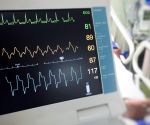Not usually, but it can help show the cause or what complications are likely. Remember when you were a kid and you’d climb a hill, call out your name, and then listen for the echo? (And isn’t it amazing how little it took to amuse kids back then?) An echocardiogram puts this principle to work by bouncing sound waves off your heart. A technician moves a transducer that sends out sound waves around your chest. The echo is recorded and a computer converts the echoed sound waves into a moving picture on a screen. Your doctor will use the images to check
- the size and shape of your heart.
- how your heart chambers and valves are working.
- how well your blood is flowing.
Based on what he sees, he will be able to figure out whether or not you are experiencing atrial fibrillation or its major complication (if you have a clot in your heart from it).
Continue Learning about Atrial Fibrillation
Important: This content reflects information from various individuals and organizations and may offer alternative or opposing points of view. It should not be used for medical advice, diagnosis or treatment. As always, you should consult with your healthcare provider about your specific health needs.





